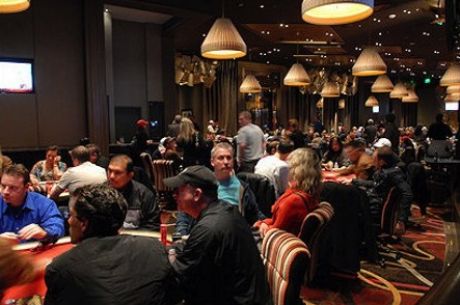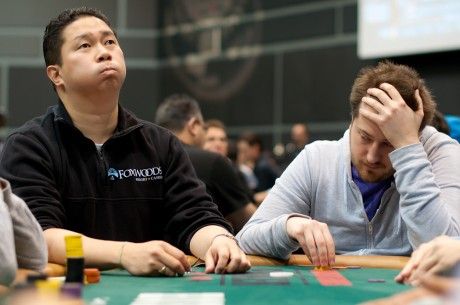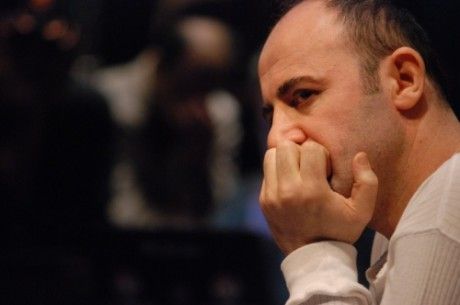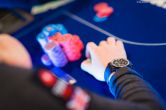Learn How to Study Your Opponents with TradingHD��s ��How to Research Investment Ideas��
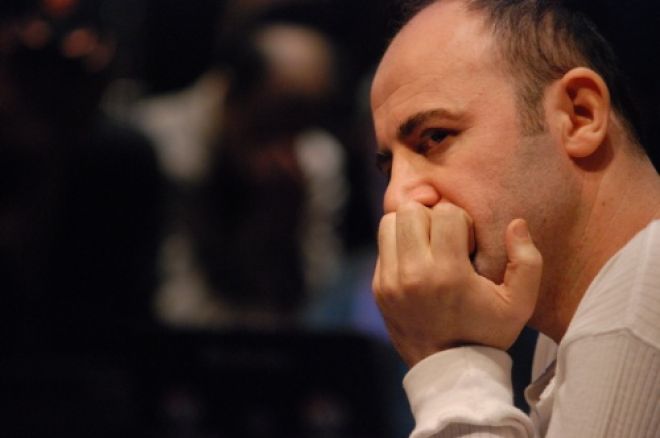
You've no doubt heard many top players talk about how poker isn't a game you ever really "master." That's because every time you sit down to play you are necessarily presented with a host of new situations and opponents, forcing you to constantly revisit ideas as you gather new information and try (again and again) to form a winning strategy for the new circumstances you face.
It's possible to play poker without constantly studying your opponents and actively learning how best to combat them. It's even possible sometimes to win at poker without always being so attentive. But those who play that way �� either ignoring or only partly adapting to what their opponents are doing �� are really just gambling that their previously learned formulas are going to work for them again.
No, the best poker players are always on the lookout for new ideas for how to win this time in this game. They're armed with tried-and-true strategic insights derived from what has worked for them before, but they're also always ready to revise their thinking when the information presented before them suggests they should.
The best poker players are very much like the wisest investors. They, too, are similarly observant when conducting research and devising new ideas upon which to build winning investment strategies. Such is a thesis explored by investment advisor Raoul Pal in his new online course for TradingHD, How To Research Investment Ideas.
As Pal explains, it is one thing to know about various portfolio frameworks and how they work, but it is much more important to have a good idea with which to inform a profitable investment strategy �� that is to say, an idea that has been well researched and therefore is going to be more likely to make those portfolio frameworks profitable.
Think of a poker player who has played enough to know that it is generally more profitable to play from late position than from early position. Knowing that, the player plays more hands from the cutoff and the button than from the blinds and under the gun. But then let's say the two toughest opponents at the table just happen to be sitting to this player's left, meaning any time he opens from late position he's likely going to be tangling with one or both of them.
The smart player �� like the wise investor �� has arrived at this idea about the higher skill level of these two opponents via "research" or study of how they have been playing. The player then uses that idea to adapt going forward, perhaps avoiding getting involved in hands with those players, or looking for opportunities to exploit their aggressiveness when out of position, or seeking some other way to deal with the situation.
What we're talking about is a lot more challenging than simply understanding that "late position is good." We're talking about something a lot more demanding, requiring genuine effort and "research skills" in order to develop a specific, winning approach.
Pal's course focuses on helping investors learn how to conduct research in order to discover and develop their own good investment ideas. As an advisor and consultant to governments and investment offices around the world, Pal brings more than two decades' worth of experience to the course, having previously worked for investment banks like Goldman Sachs and for GLG Partners, one of the world's largest hedge fund firms.
Pal has a lot of experience teaching others about how to develop investing ideas, too, incuding publishing The Global Macro Investor, an elite macro economic and investment strategy research service. He's also a co-founder of Real Vision Television, the first on-demand web TV channel for finance. His course additionally draws upon the knowledge of legendary global macro traders like Stanley Druckenmiller and Paul Tudor Jones, people Pal himself has worked with in the past to discover how best to research investment ideas.
Interestingly, Pal's course �� consisting of seven video lectures �� carries the would-be investor through four steps of researching an idea that in a lot of ways resemble four steps a poker player might go through when "researching" others at the table and forming an idea how best to play against them.
Step 1: Researching an Initial Idea
Pal's expertise is in macroeconomics �� that is, he's good at looking at the "big picture" and is more often doing that sort of work than investigating a single company. He's also one who likes to look at the data or "start with the chart" as a first step toward building an investment idea.
In the online course he does just that, starting with some examination of recent trends (as reflected in a couple of price charts) as a means to trigger other avenues of inquiry to help explain the reasons for the patterns demonstrated in the charts.
This is a lot like noticing a pattern starting to emerge at the poker table and filing it away as something on which to base still more research. Take those two tough players sitting to the left of our player mentioned above. He sees them put in postflop check-raises a few times, part of other information he��s gathered about them helping suggest they aren't passive and in fact appear to be more creative than the average foe.
What next?
Step 2: Homework (More Research)
From here Pal talks at length about further studying what lies behind the pattern a potential investor has observed. We��ll leave the details of his example aside, but share his point that further research can help clarify the meaning behind the initially observed patterns. And, importantly, how sometimes you'll discover further research modifies or contradicts what the chart pattern might superficially suggest.
Going back to our player's research into the play of those two challenging players sitting to his left, he may discover via a series of showdowns that one has been playing back from out of position with genuinely strong hands �� that is to say, he isn't necessarily playing as creatively as suggested by the earlier impression. Meanwhile the other has shown down a couple of bluffs, confirming that he really is aggressive and/or loose (as suspected).
Step 3: Knowing the "Knock-On Effect"
Having performed the first two steps' worth of research, Pal explains, the investor now knows a lot more than the "average Joe" about not only what the patterns are but what is causing them. This understanding of causality in the marketplace �� or how one thing is having a "knock-on effect" on another �� gives the investor the ability to anticipate what is going to happen next, which not only distinguishes that investor from others but also greatly increases the chance of making a wise, profitable investment.
You can see how this idea applies to our poker game, where the attentive player has readied himself for how to respond the next time one or the other of his neighbors to the left tries another check-raise.
Step 4: Implementation
For the investor, the next step is applying all of this study and implementing the fully-researched idea into a portfolio framework. Again, Pal is careful to stress the need to be thorough and methodical before testing your idea, as well as to be prepared for the possibility that even after having assessed all of the probabilities your idea may not be correct, or that it will have to be revised further afterwards.
Similarly has our player arrived at a place where he��s now able to put his well considered idea into practice, implementing what he��s learned about his opponents and using that study to play against them in what will hopefully be a profit-producing way.
As Pal points out, so many who enter the world of investing aren��t willing to do this extra research. They notice a headline suggesting some potential investment idea and act immediately, not bothering to research it fully beforehand. There's a word for what such investors are doing, one that also applies to the non-observant poker player unwilling to put in the work necessary to think actively at the table and "research" ideas for how to play a winning strategy...
Gambling.
Learn more about researching investment ideas and other ways to sharpen your observational skills in profitable ways at TradingHD.
Want to stay atop all the latest in the poker world? If so, make sure to get PokerNews updates on your social media outlets. Follow us on Twitter and find us on both Facebook and Google+!

